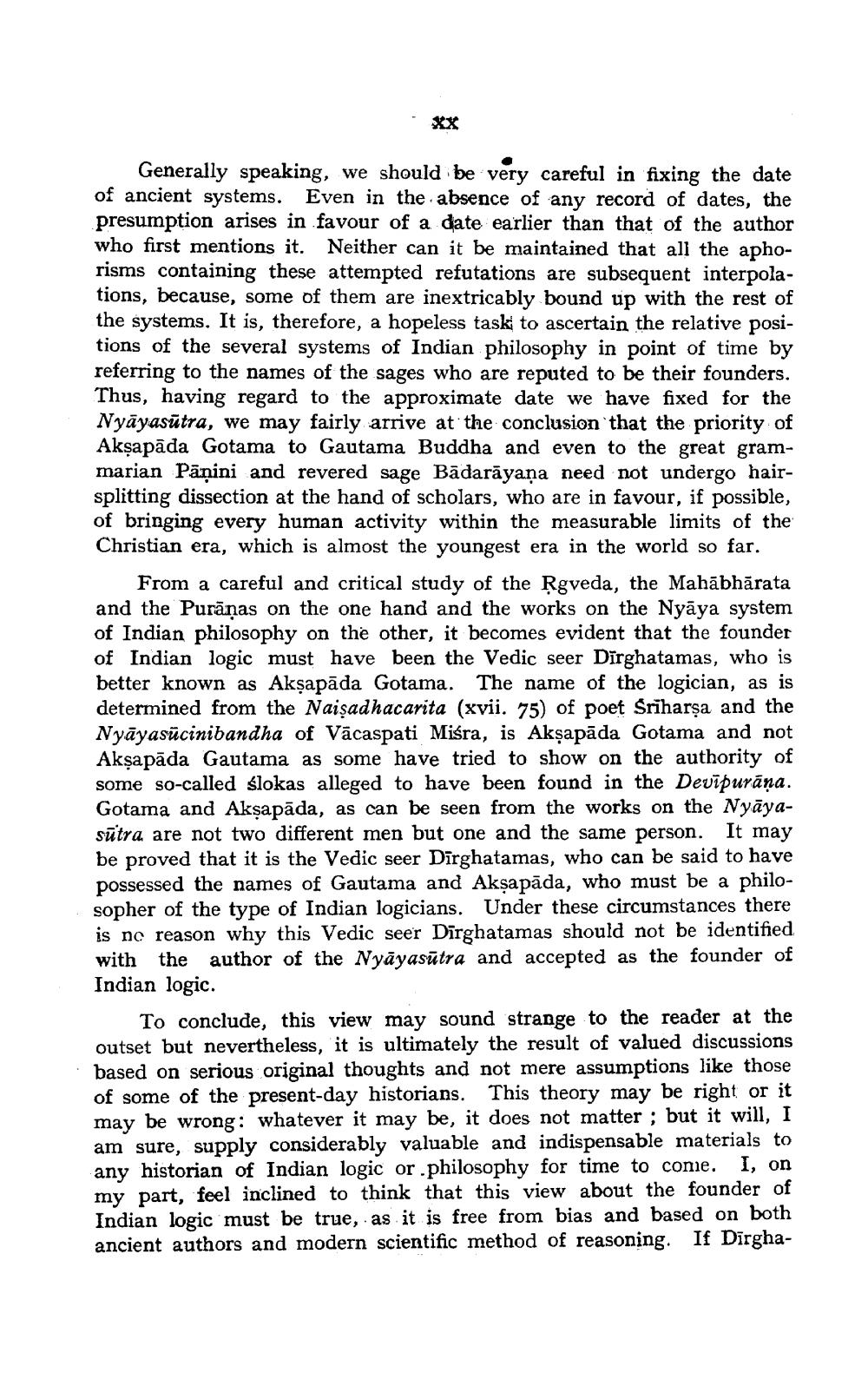________________
Generally speaking, we should be very careful in fixing the date of ancient systems. Even in the absence of any record of dates, the presumption arises in favour of a date earlier than that of the author who first mentions it. Neither can it be maintained that all the aphorisms containing these attempted refutations are subsequent interpolations, because, some of them are inextricably bound up with the rest of the systems. It is, therefore, a hopeless task to ascertain the relative positions of the several systems of Indian philosophy in point of time by referring to the names of the sages who are reputed to be their founders. Thus, having regard to the approximate date we have fixed for the Nyāyasūtra, we may fairly arrive at the conclusion that the priority of Akşapāda Gotama to Gautama Buddha and even to the great grammarian Pāņini and revered sage Badarāyana need not undergo hairsplitting dissection at the hand of scholars, who are in favour, if possible, of bringing every human activity within the measurable limits of the Christian era, which is almost the youngest era in the world so far.
From a careful and critical study of the Rgveda, the Mahābhārata and the Purānas on the one hand and the works on the Nyāya system of Indian philosophy on the other, it becomes evident that the founder of Indian logic must have been the Vedic seer Dirghatamas, who is better known as Akşapāda Gotama. The name of the logician, as is determined from the Naisadhacarita (xvii. 75) of poet Sriharsa and the Nyāyasücinibandha of Vācaspati Miśra, is Akşapāda Gotama and not Akşapāda Gautama as some have tried to show on the authority of some so-called slokas alleged to have been found in the Devipurāna. Gotama and Aksapāda, as can be seen from the works on the Nyāyasūtra are not two different men but one and the same person. It may be proved that it is the Vedic seer Dirghatamas, who can be said to have possessed the names of Gautama and Akşapāda, who must be a philosopher of the type of Indian logicians. Under these circumstances there is no reason why this Vedic seer Dirghatamas should not be identified with the author of the Nyāyasūtra and accepted as the founder of Indian logic.
To conclude, this view may sound strange to the reader at the outset but nevertheless, it is ultimately the result of valued discussions based on serious original thoughts and not mere assumptions like those of some of the present-day historians. This theory may be right or it may be wrong: whatever it may be, it does not matter ; but it will, I am sure, supply considerably valuable and indispensable materials to any historian of Indian logic or.philosophy for time to conie. I, on my part, feel inclined to think that this view about the founder of Indian logic must be true, as it is free from bias and based on both ancient authors and modern scientific method of reasoning. If Dirgha




